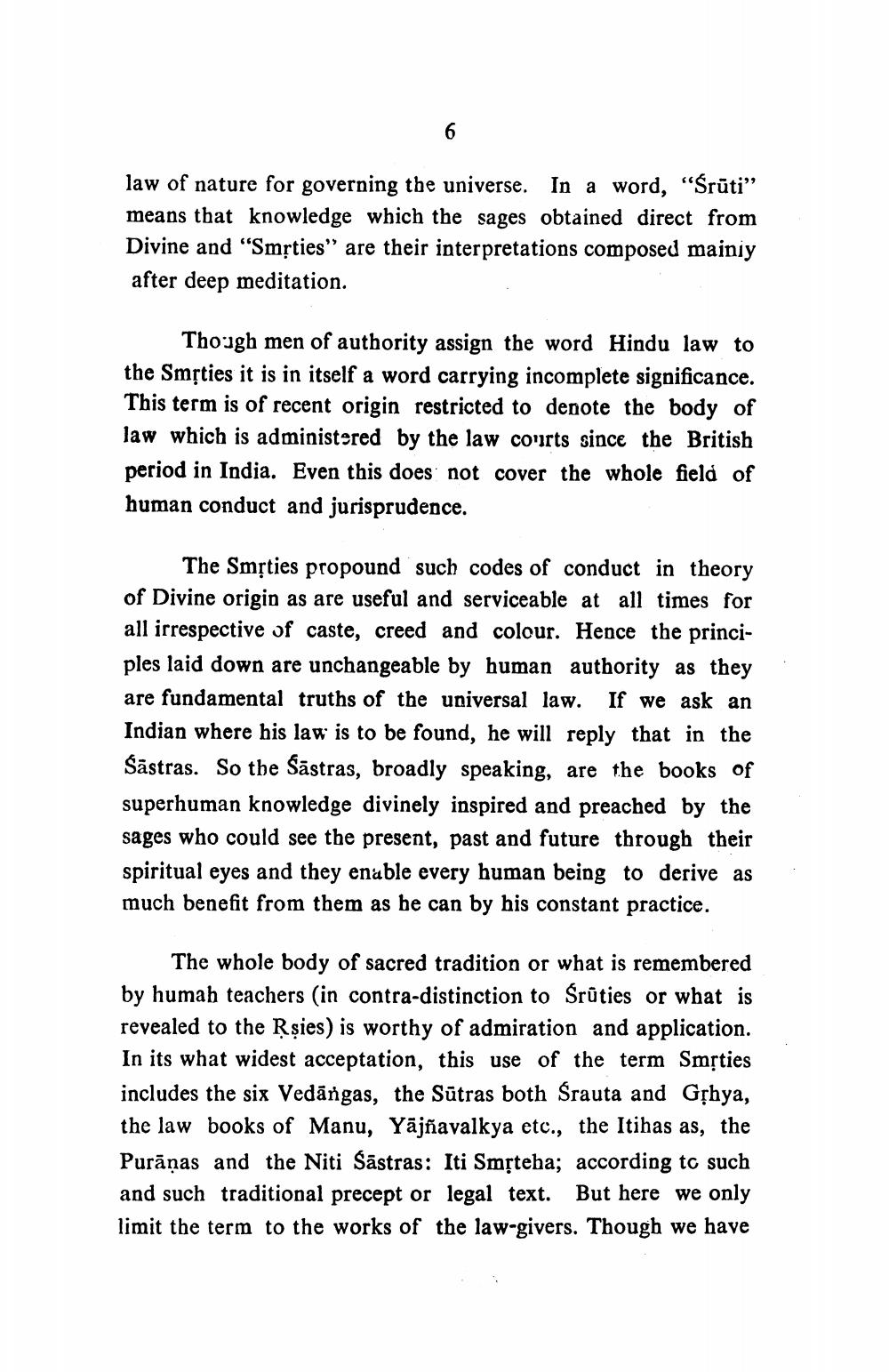________________
law of nature for governing the universe. In a word, "Śrūti” means that knowledge which the sages obtained direct from Divine and "Smộties" are their interpretations composed mainiy after deep meditation.
Though men of authority assign the word Hindu law to the Smsties it is in itself a word carrying incomplete significance. This term is of recent origin restricted to denote the body of law which is administered by the law corirts since the British period in India. Even this does not cover the whole field of human conduct and jurisprudence.
The Smộties propound such codes of conduct in theory of Divine origin as are useful and serviceable at all times for all irrespective of caste, creed and colour. Hence the principles laid down are unchangeable by human authority as they are fundamental truths of the universal law. If we ask an Indian where his law is to be found, he will reply that in the Šāstras. So the Šāstras, broadly speaking, are the books of superhuman knowledge divinely inspired and preached by the sages who could see the present, past and future through their spiritual eyes and they enable every human being to derive as much benefit from them as he can by his constant practice.
The whole body of sacred tradition or what is remembered by humah teachers (in contra-distinction to Srūties or what is revealed to the Rșies) is worthy of admiration and application. In its what widest acceptation, this use of the term Smrties includes the six Vedāngas, the Sūtras both Srauta and Gșhya, the law books of Manu, Yājñavalkya etc., the Itihas as, the Purāṇas and the Niti Šāstras: Iti Smộteba; according to such and such traditional precept or legal text. But here we only limit the term to the works of the law-givers. Though we have




